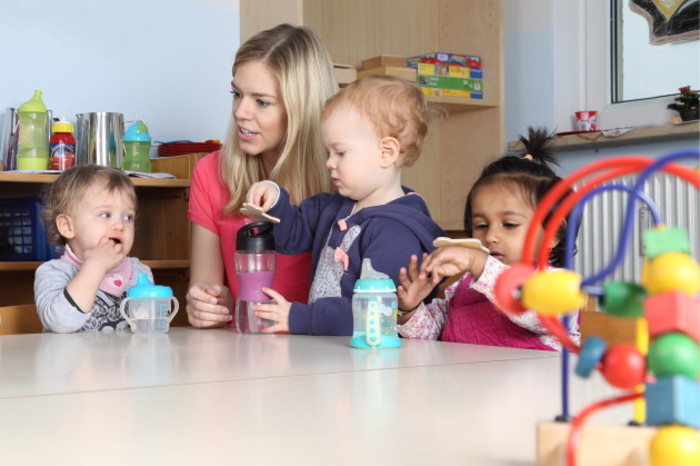Businesses should help fund free public childcare, says think tank
The Nevin Institute said that the move would help more people to get into the workforce.
BUSINESSES SHOULD HELP fund a system of free public childcare to help get more people into Ireland’s workforce.
That is according to the Nevin Economic Institute, an economic think-tank funded by a number of trade unions affiliated to the Irish Congress of Trade Unions.
In its latest quarterly economic report, the organisation said that in the “medium-term” Ireland should move towards a system of “free public childcare paid for through increases in employer social contributions”.
Speaking to Fora, Tom McDonnell, Nevin’s senior economist and the lead author of the report, said that while employer contributions could be used to fund free public childcare, a more likely system would include contributions from employers, the state and workers.
“The state benefits in terms of public finances because there are less people on welfare (and) employees obviously benefit through lower costs,” he said.
“Employers benefit because there are less people out looking for work so there is less pressure on wages and they also get to keep some of their most experienced workers who may otherwise have had to leave the labour force.”
Barrier to work
The report by Nevin said that the high cost of childcare in Ireland, previously highlighted by the OECD, is a barrier to labour market entry.
“(It is) likely to be an important factor in the Republic’s low rate of female labour force participation and employment compared to other western European economies,” it said.
“The OECD estimate that the net childcare costs for couples as a share of the average wage is the second highest in the OECD. Net childcare costs for lone parents as a share of average wage are by far the highest in the OECD.
“State-subsidised childcare would incentivise the labour force participation of second earners and lone parents. A long-run solution would be to move gradually to a model of public childcare provision.”

McDonnell said that increasing employers social contributions could be used to help fund free childcare.
More than 10% of the total amount Irish businesses spend on wages go towards social contributions, which provide funding for employee benefits like short-term illness and injury payments.
‘Medium term’
The percentage of labour costs paid in employee social security contributions varies widely ranging in OECD countries, from zero in Australia and Denmark to 27.5% in France.
“Using the PRSI system for employer contributions would probably be a good way to go about it, (but) arguably the best way would be for employers, employees and the state to contribute,” McDonnell said.
He said that such a system could be introduced in the medium term, which he defined as about 10 years.
“We shouldn’t be aiming for plaster measures, we should be looking at about a 5, 10, 15-year framework to solve this issue,” he said.
He said that the institute had not identified the exact cost of a free public childcare system, but added that it would likely be quite expensive.
“We would probably be talking in the hundreds of millions of euro,” he said. “(But) other countries spend multiples of what we do on childcare, up to 1% of their GDP, we spend about 0.2%.”






